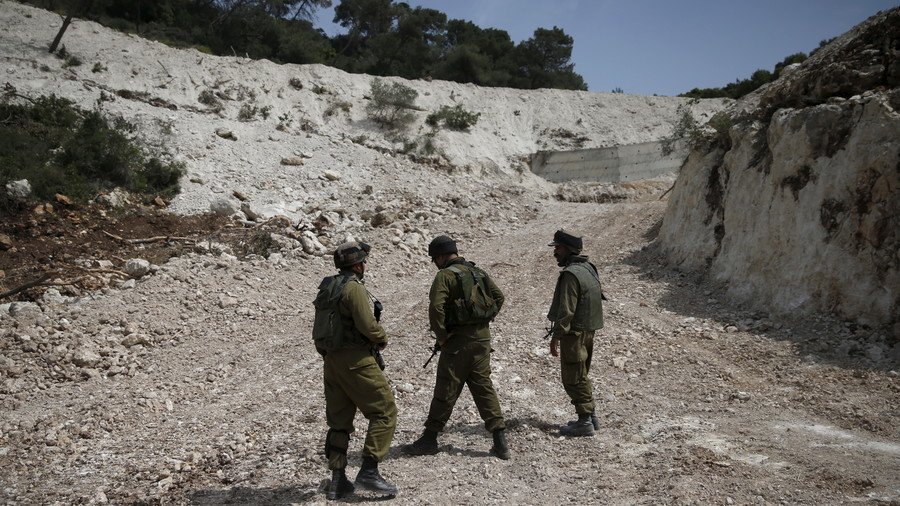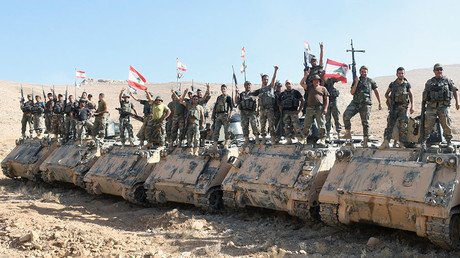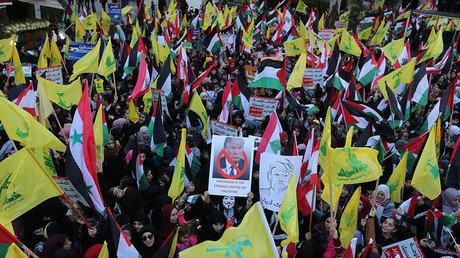Israel threatens Lebanon with ‘full strength’ ground invasion in case of conflict

Tel Aviv is ready for an all-out ground invasion of Lebanon in the event of a military conflict with Beirut, Defense Minister Avigdor Lieberman said. His comments come as relations between the two neighbors continue to sour.
“We must prepare for maneuvering on the ground too, even if we do not use it,” the minister said at a conference of the Institute for National Security Studies (INSS) held at Tel Aviv University on Wednesday.
Not mincing his words, Lieberman said that, in a worst-case scenario, Israel would conduct the operation at “full strength.” “We must not take one step forward and one step backward. We will move forward as fast as possible,” Lieberman added, speaking about the Israeli strategy in a possible conflict with its northern neighbor.
At the same time, he said that “maneuvering is not a goal in itself,” but is a means of ending the war in what Tel Aviv sees as the most efficient way.“No one is looking for adventures, but if we have no choice the goal is to end [the fighting] as quickly and as unequivocally as possible,” the minister told the conference, adding that Israel’s past experience has shown that “all the conflicts in the Middle East” do not “come to an end” without “soldiers on the ground.”
Israel will act tough on Lebanon, the minister warned. He particularly said that the situation of the Second Lebanon War, “in which the residents of Beirut were at the beach and in Tel Aviv [they were] in bomb shelters,” will not repeat itself if a new conflict breaks out. “If in Israel they sit in shelters, then in the next fighting all of Beirut will be in shelters,” Lieberman added.
The minister’s comments come amid Israel’s concerns over the Lebanese Hezbollah armed group, which allegedly plans to arm itself with locally-produced precision-guided missiles.
“The Hezbollah terror organization is violating the UN Security Council resolutions, maintaining a military presence in the region, possessing weapons systems and increasing its military capabilities,” Gabi Eisenkot, the head of the Israeli Defense Forces General Staff, said on Tuesday, as cited by Haaretz.
Lieberman also said that he sees no difference between Hezbollah and the rest of Lebanon, as he believes that the armed group has enough influence to control both political and military forces of Israel’s northern neighbor. “They are part of Hezbollah and they will all pay the full price” for any large-scale attack on Israel.
The last major conflict between Israel and Lebanon broke out in 2006. The military confrontation, known as the Second Lebanon War in Israel and the July War in Lebanon, lasted 34 days and ended with a UN-brokered ceasefire.
In contrast to Lieberman’s words, the war took a much higher toll on Lebanon than on Israel. The conflict claimed the lives of 1,191 Lebanese people and left more than 4,400 injured, according to the local officials cited by a UN report. More than 900,000 Lebanese had to flee their homes because of the hostilities.
Israel reportedly lost fewer than 200 people in the conflict, according to various sources, with most of them being IDF soldiers. Tensions between the two nations heightened following a brief November political crisis in Lebanon.
In late November, the Lebanese Army asked the military to be at “full readiness” to face “the Israeli enemy” on the southern border. At the same time, Lebanese President Michel Aoun said that “Israeli targeting still continues and it is the right of the Lebanese to resist it and foil its plans by all available means.”
















